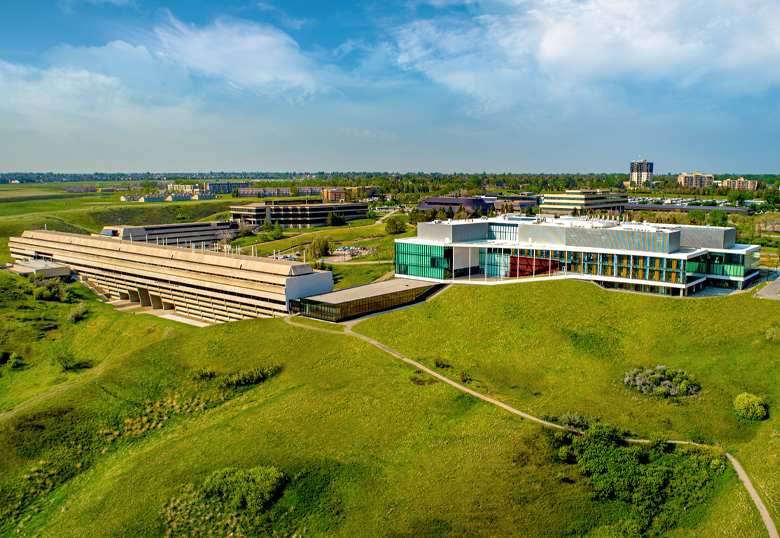Two University of Lethbridge researchers will be taking part in a $10-million partnership to study the effectiveness of Canada’s wetlands to help with climate targets.
Dr. Larry Flanagan and Dr. Matthew Bogard will be part of the research team that will be studying on how wetlands help in combating climate change.
The research team is led by vice-principal of research and innovation at the university of Toronto, Scarborough, Dr. Irena Creed. The project will help to build scientific understanding of wetlands, their function, and the services they help to provide.
“This work is highly relevant to southern Alberta and the Lethbridge area, because wetland protection and restoration is front and center in many discussions related to sustainable agriculture and watershed management,” says Dr. Matthew Bogard.
Wetlands offer essential ecological services for wildlife, humans and the climate. They help to protect and improve water quality, provide homes for fish and wildlife, store floodwaters and maintain surface water during during the dry periods. They also help to store large amounts of carbon, which benefit to fighting climate change, but also emit larger quantities of methane which is a potent greenhouse gas.
“This project is also key to broadening our knowledge about the part wetlands can play in mitigating climate change,” says Dr. Larry Flanagan.
Bogard, an aquatic scientist, and Flanagan, a terrestrial ecologist, will be providing a more integrated, land-to-water picture of how wetlands cycle carbon and nutrients, with a focus on understanding the weight of net carbon sequestration relative to emissions of other greenhouse gases, like methane and nitrous oxide.
Bogard’s team will be looking into the greenhouse gas content in the water in wetlands across Canada. this will be done by calculating the rate of emissions of carbon dioxide, methane, and nitrous oxide. The research should then lead to an estimate on how wetlands work to influence the Earth’s climate.
While Flanagan and his team will be using a form of sampling technique called eddy covariance that continuously tracks exchanges of carbon dioxide and methane between wetlands and the atmosphere. The team will also be assessing wetland ecosystem responses to environmental conditions like drought, warmer temperatures and nutrient pollution. the information from this research will work to evaluate what contributions nature-based solutions make to help reduce the effects of climate change.
This research project is being funded by the Government of Canada’s climate Action and Awareness Fund, which has an investment of $206 million over five years to support Canadian-made projects that work to help reduce greenhouse gas emissions in the Country.




